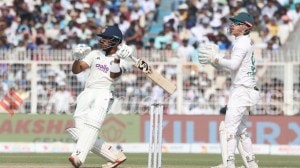Bring modified policy to regulate Dahi Handi and other festivals as per capacity of public roads: HC
Bombay HC says balance required between public expression of religious sentiments and protection of larger public interest
 Bombay High Court. (File photo)
Bombay High Court. (File photo) The Bombay High Court on Wednesday asked the Maharashtra government to revisit and consider from next year a comprehensive modified policy to regulate dahi handi and other celebrations, keeping in mind the density of population in Mumbai and capacity of public roads.
The court said that public roads are no longer suitable to hold such events with large numbers of participants and said the “best way is not to grant permission for such events on public roads”. It said a balance should be struck between the need for public expression of religious sentiments and the protection of larger public interest to reduce inconvenience of road users and local residents.
A division bench of Justice Sunil B Shukre and Firdosh P Pooniwalla was hearing plea by Sachin Basare, member of Shiv Sena (UBT) group. Basare sought to know why one group belonging to Ravindra Rajaram Patil of Shiv Sena-led by Chief Minister Eknath Shinde was allowed to celebrate dahi handi festival at Chhatrapati Shivaji Chowk in Kalyan (West) on September 7, while the petitioner’s group was denied the same.
Expressing apprehension about the “present development model”, the bench said a similar situation is happening in all major cities in the state, including Nagpur and Aurangabad. “In Bangalore, there is the same scenario. Rather it is worse than Mumbai. In such a situation, now the number of participants can be regulated,” the bench said.
Senior advocate Anil Sakhare, representing the police, suggested two venues for the petitioner in the nearby area. The petitioner said he had no difficulty about the venue between Hotel Gurudev and Hotel Kuba, after which the bench asked the police and the civic body’s fire department to grant NOC to the petitioner.
The HC said the present policy regulating festivals does not consider “inconvenience and traffic congestions… due to permissions granted to various groups to celebrate the festival on public streets”.
“If it is contended by anybody that such celebrations are part of traditions, culture and social mores of the glorious city of Mumbai, the traditions and cultural practices must also evolve with changing time and changing demographics of the city,” the court said.
Noting that there is a “great influx of migrants to this city and also inherent increase in population of Mumbai”, the bench added, “We face a situation where there is an increase in the density of population in most of the areas of Mumbai and at the same time, we have also seen that the capacity of the public roads and public amenities has not been increased in proportion to increase in the population and its density.”
Therefore, the court said “now the time has come for the authorities and policymakers to revisit the policy already framed to regulate such festivals”.
“The policymakers would have to ask a question to themselves as to whether or not permission should be given to celebrate the festivals at public squares and in public streets, where huge crowds/groups are expected to visit to take part… whether or not such celebrations should be perforce shifted to open spaces and public grounds,” it noted.
The HC also said the authorities should consider limiting the number of participants in such events and identify time slots within which such festivals be celebrated by different groups at the same venue. It said the organisers should restore the venues to their original condition once the event is over.
It said, “If the policy is re-framed or modified by taking into consideration all these aspects, we are of the view that there would be a proper balance struck between the need for public expression of religious sentiments on one hand and need for protecting larger public interest by reducing the inconvenience to the road users and the residents of near by localities and also reducing traffic congestion at such venues on the other hand.”







